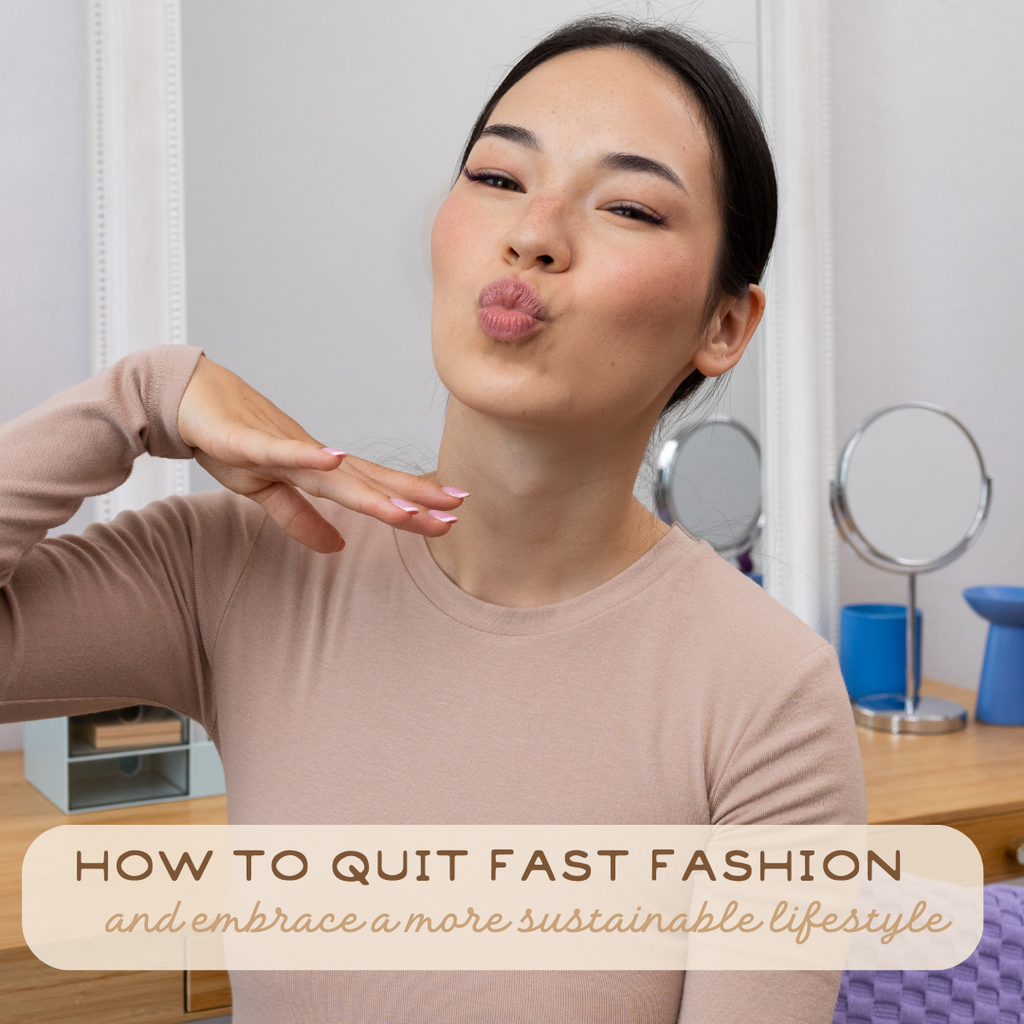
There is an ever revolving door in fashion these days; it seems like the moment you figure out what is trending and how to follow it, it's just as quickly no longer relevant, already moving on to the next micro trend.
The concept of "fast fashion" refers to this very idea: that instead of seasonal releases of new styles that are thoughtfully crafted and ethically produced, we have several dozen micro seasons in the fashion world. Trends are constantly coming and going, things are made cheaply and poorly to stay affordable, and everything is outdated almost as soon as you've bought it.
How are we supposed to keep up?
What if we actually shouldn't try at all?
The social impact of fast fashion
One of the consequences of fast fashion is the social impact; a large percentage of human trafficking victims are caught in modern day slavery in the form of textile work. Nearly $150 billion of the clothing sold in the US are believed to be made using slave labor, and the United States is the greatest offender in purchasing these harmful products.
The fast fashion industry is sustained by the human trafficking industry, and vice versa. Making an effort to impact one problem will inevitably impact the other. Avoiding fast fashion will starve out the human trafficking industry, and using your money to vote with your dollars is the biggest way for you to make sure you're supporting the right causes.
The environmental impact of fast fashion
Another factor in the fast fashion industry's harm is the waste caused in returns. Not the issue that you'd think, but a large problem nonetheless. A high percentage of online clothing purchases are returned, but the retailers often don't take them back to resell. Instead, they're often sent straight to landfills, burned, or shipped to empty spaces in the African continent for the locals to deal with.
It's believed that an estimated 85% of fast fashion products end up in the dumps every single year, the worst offending retailers of which are H&M, SHEIN, Forever21, and Zara. The constant fashion cycling in and out of stores not only creates high opportunity for the human trafficking industry to thrive, but also creates a high amount of waste that ends up in the landfills, and an alarming amount of environmental strain and pollution from the creating of these textiles.
Beyond just the landfills, the other harms of fast fashion come in the forms of water pollution, both from dyes used and microplastics that are released into rivers and oceans from the high amount of polyester, rayon, and spandex from creating these items and then wearing and washing them. What you may save by choosing to buy these poorly made items, is the price the community pays in the area from which these items originate, through the form of environmental pollution of their water, soil, and air.
The price may seem right for these textiles, but with the environmental and social impacts, and the fact that most items begin wearing down by pilling and growing holes after only a few wears, they are hardly worth the low price tag.

How are we supposed to make a difference in the face of all these challenges? The fast fashion industry has only been gaining speed and popularity.
1. Thrift Your Clothing
When your budget is tight and you're needing something affordable, the most ethical place you can shop is your local thrift store! You're not only saving items that may eventually end up in the landfill or ocean, but you're sticking to your budget while reducing the demand for fast fashion options.
2. Donate or resell unwanted clothes
If you're wanting a way to afford some nicer clothing options, we recommend using apps like Poshmark, ThredUp, or even Facebook Marketplace as a means of reselling your used clothing to save up for ethical slow fashion brands you're wanting to be able to invest in. This option reduces waste and encourages a mindfulness that's been lacking in the awareness of many consumers for a long time.
3. Invest in ethical clothing brands
When you're looking for the opportunity to invest in nicer pieces, learn which brands have ethical, fair trade practices and vote with your dollars to purchase from these brands! Brands that not only exercise sustainability and fair trade practices, but also are made from higher quality materials and are going to be able to stand the test of time and show greater durability.
Slow fashion brands we love
PACT - certified Fair Trade clothing made with environmentally conscious materials and minimal carbon emissions.
Patagonia - donates 1% of all clothing sales to environmental preservation and restoration.
Everlane - men and women's clothing made from recycled and ethically sourced materials.
Alternative - eco friendly materials and quality manufacturing.
Starfish Project - ethical jewelry handmade by survivors of human trafficking.
JOYN - certified Fair Trade handbags made from ethically sourced fabric and leather.
Check out the Good Shopping Guide for more ethically sourced, eco friendly brands!

